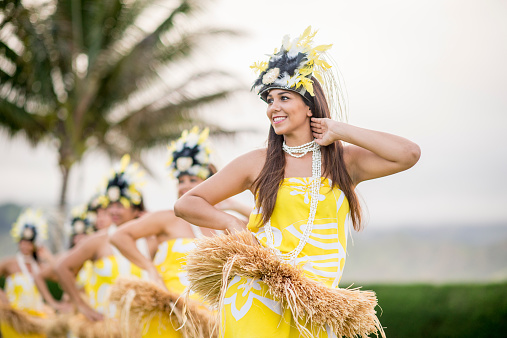
![]() Hawaiian
Hawaiian
Culture, History & Spirituality

![]() Hawaiian
Hawaiian
Culture, History & Spirituality
Culture, history, and spirituality in Hawaii are deeply intertwined, reflecting the islands' unique blend of indigenous Hawaiian traditions, influences from various immigrant groups, and the natural beauty of the archipelago. Here's an overview of each of these aspects:
![]() CULTURE:
CULTURE:
Hawaiian Culture:
The indigenous culture of Hawaii is rooted in Polynesian traditions and has a strong emphasis on family, community, and nature. Hawaiians have a rich oral tradition of storytelling and chants, such as the hula, which is a form of dance and storytelling.
Hula:
The hula is a traditional Hawaiian dance that conveys stories, history, and spirituality. It has a deep connection to nature and often uses graceful movements and symbols to express different themes.
Aloha Spirit:
"Aloha" is more than just a greeting; it embodies the Hawaiian way of life, promoting love, peace, and harmony with others and the natural world.![]() HISTORY:
HISTORY:
Early History:
Hawaiians are believed to have settled the islands around 1500 years ago. The islands were ruled by various chiefdoms and ali'i (chiefs), each with its own system of governance and culture.
Contact with the West:
The late 18th century saw the arrival of European explorers and, eventually, American and European settlers. This contact led to significant changes in Hawaiian society, including the introduction of Western diseases, religion, and political influences.
Hawaiian Kingdom:
In 1810, King Kamehameha I unified the islands into the Kingdom of Hawaii. It was a constitutional monarchy and maintained its independence throughout most of the 19th century.
Annexation:
The late 19th century saw political turmoil, including the overthrow of the Hawaiian monarchy in 1893. The islands were annexed by the United States in 1898.
Hawaii's culture, history, and spirituality are a rich tapestry of indigenous and immigrant influences, and they continue to evolve in the face of modern challenges and opportunities. The islands' unique blend of natural beauty and cultural diversity makes Hawaii a place of great significance and importance to its people.![]() SPIRITUALITY:
SPIRITUALITY:
Native Hawaiian Religion:
Native Hawaiians traditionally believed in a pantheon of gods and goddesses, with each island having its own deity. Nature was deeply revered, and there was a strong connection between spirituality and the land, sea, and sky.
Christianity:
Christianity was introduced to Hawaii by Western missionaries in the 19th century. Today, various Christian denominations are practiced, and many Hawaiians incorporate Christian beliefs into their spirituality.
Aumakua:
Aumakua are ancestral spirits or guardian spirits in Hawaiian spirituality. They are believed to watch over and protect their descendants, often taking the form of animals or other natural elements.
Cultural Revival:
In recent years, there has been a revival of interest in and respect for traditional Hawaiian spirituality and practices. Many Hawaiians are working to preserve and pass on these ancient beliefs and practices.